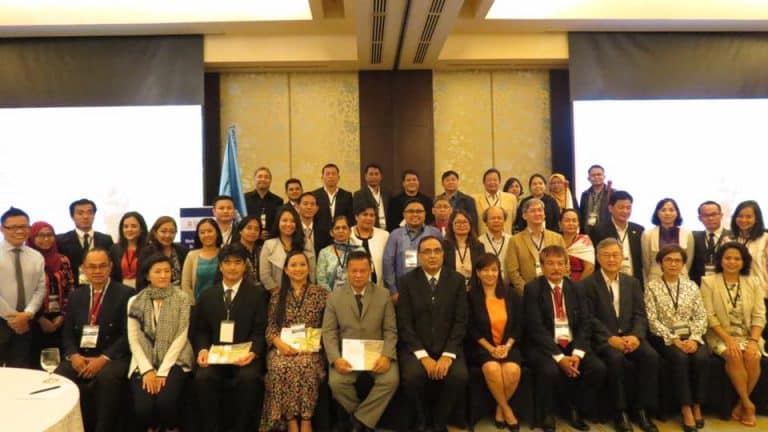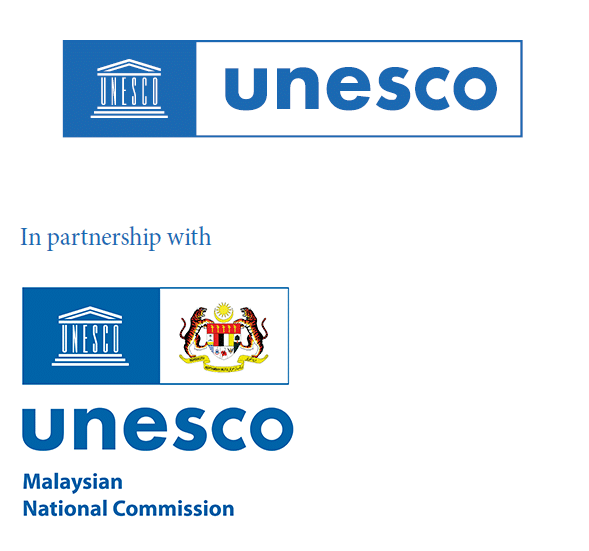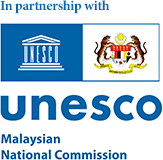Background
As outlined by the Sustainability Science Programme at Harvard University’s Center for International Development: “Sustainability Science is an emerging field of problem-driven, interdisciplinary scholarship that seeks to facilitate interventions that foster shared prosperity and reduced poverty while protecting the environment.
It offers integrated scientific learning, with a greater focus on sustainability along with a greater community relevant understanding of the human environmental interrelatedness. The field is defined by the problems it addresses rather than the disciplines it employs. It draws from multiple disciplines of the natural, social, and engineering sciences, from the professions, and from practical filed experience in business, government, and civil society.”
In order to apply sustainability science approach, UNESCO Jakarta, in its capacity as the Regional Science Bureau for Asia and the Pacific, has been implementing the project “Science Harnessed for ASEAN Regional Policy (SHARP)” financially assisted by Malaysia Funds-In-Trust and “Sustainability Transformation Across the Region (STAR)” financially assisted by Japan Funds-in-Trust. Five demonstration sites have been established in three countries across the region:
- Siem Reap/Tonle Sap, Cambodia: “Establishment of Sustainable Science Demonstration Project on Restoring and Enhancing Angkor World Heritage Site and Siem Reap City Water Systems”.
- Langkawi Geopark, Malaysia: “Establishment of Sustainability Science Demonstration Site on Water and Environmental Sustainability Education Linked With Ecotourism in Langkawi Geopark”.
- Davao, the Philippines: Demonstration site on “Enhancing Resilience to Disasters of Urban Water Systems of Mindanao”.
Ifugao Rice Terraces, the Philippines: “Establishment of Sustainable Science Demonstration Project on Rice Terraces of the Philippines Cordilleras”. - Langat River Basin, Malaysia: “Establishment of Sustainable Science Demonstration Project on Restoring and Managing Langat River, Malaysia for Future”.
All these sites are nominated as UNESCO Designated Sites: Biosphere Reserves, forming a World Network of biodiversity conservation, research and development which is the core of the Man and the Biosphere (MAB) Programme; World Heritage Sites, protected under the World Heritage Convention, and; UNESCO Global Geoparks, under the International Geosciences and Geoparks Programme (IGGP). Two sites are HELP (Hydrology for Environment, Life and Policy) river basins from the International Hydrological Programme (IHP).
Furthermore, during the Synthesis Workshop of the project “Sustainability Transformation Across the Region (STAR)” and the project “Science Harnessed for ASEAN Regional Policy (SHARP)” (2-4 November 2016 in Langkawi, Malaysia), discussions on policy aspects had taken place among ASEAN Member States (AMS) and wider UNESCO network.
Representatives discussed pathways to implement sustainability science approach through exchanges on current environmental sustainability programmes in the different AMS and how the lessons learned at the demonstration sites’ level could be upscaled and translated into sustainability policies at national level.
With such development, a dedicated policy workshop to integrate sustainability science into policies for AMS is seen important, drawing upon the results of demonstration sites and policy recommendations thereof, in order to assist AMS in formulating biodiversity conservation and sustainability-related strategy in respective countries. The policy workshop will also provide the opportunity to discuss how to improve UNESCO Designated Sites and ASEAN Heritage
Parks management based on sustainability science concept to ensure sustainable economic and social development of the specially designated areas.
In this regards, the current workshop “Strengthening Science-Policy-Society Interface for Implementing Sustainability Science for Biodiversity Conservation in ASEAN and Asia Pacific Region” is being organised under the project “Science Harnessed for ASEAN Regional Policy” (SHARP) financially assisted by Malaysia Funds-In-Trust, and the project on “Sustainability Transformation Across the Region (STAR)” financially assisted by Japanese Funds-in-Trust. This activity is carried out within the ASEAN-UNESCO Framework Agreement of Cooperation (FAC) and associated Indicative Joint Programme of Action 2014-2018.
Scope of the Workshop

This workshop is the final activity of the two projects mentioned above. The first day aims at showcasing sustainability and biodiversity in ASEAN through UNESCO Designated Sites and ASEAN Heritage Parks, policy recommendations from SHARP sustainability science demonstration projects, and science-policy-society integration for ASEAN countries. The second day will bring the discussions to a broader context for Asia and the Pacific region by sharing the outputs from the STAR sustainability science demonstration projects, with a broader focus on the implementation for water related issues on UNESCO sites.
This workshop will bring around 70-75 partners and stakeholders from demonstration sites project, ASEAN Member States (AMS), the Philippines government, International Hydrology Programme and Man and the Biosphere National Committees, academician and sustainability science experts, as well as UNESCO partners in Asia and the Pacific region.
The workshop will be held on 19-20 June 2017 in Manila, the Philippines.
Workshop Objectives
- To disseminate the results of SHARP project to ASEAN Member Countries in order to enhance understanding on how sustainability science approach can assist sites, including UNESCO Designated Sites and ASEAN Heritage Parks, in conserving biodiversity specifically and in improving protected areas management generally, by addressing socio-environmental stressors to ensure sustainable economic and social development for more sustainable and resilient future.
- To strengthen the link among UNESCO Designated Sites and ASEAN Heritage Parks.
- To disseminate and discuss the results of STAR project by sharing successful stories on sustainability science demonstration sites in Asia and the Pacific region. To further discuss among regional UNESCO Science programs’ networks how Sustainability Science can support the delivery of Agenda 2030.
Venue
Crimson Hotel Filinvest City, Manila
Entrata Urban Complex, 2609 Civic Drive,
Filinvest City Alabang, Muntinlupa City 1781
(02) 863 2222 ·
www.crimsonhotel.com




